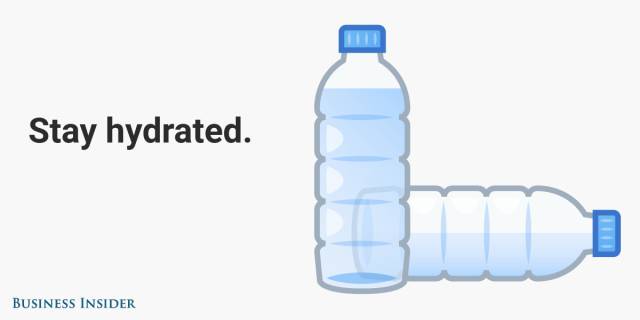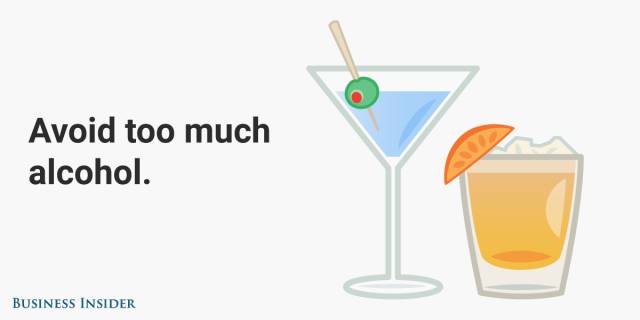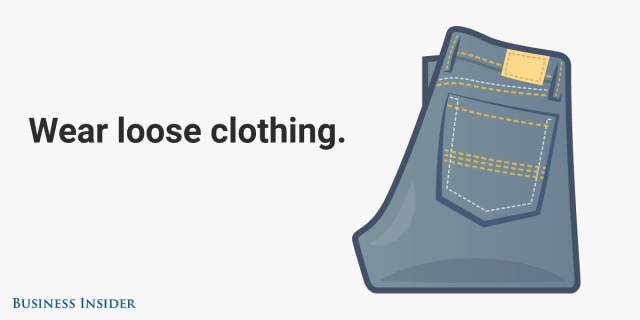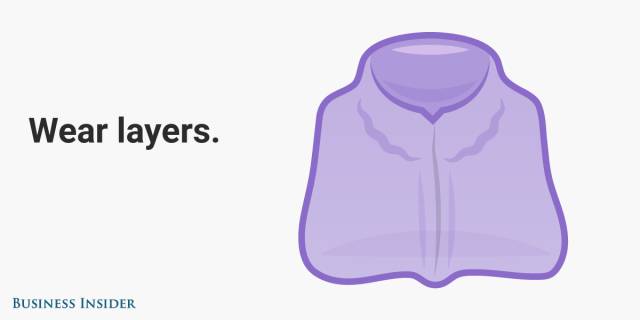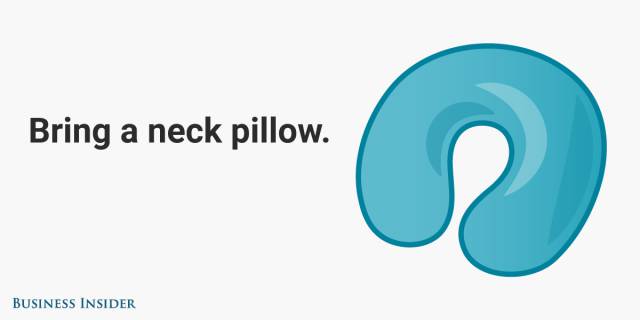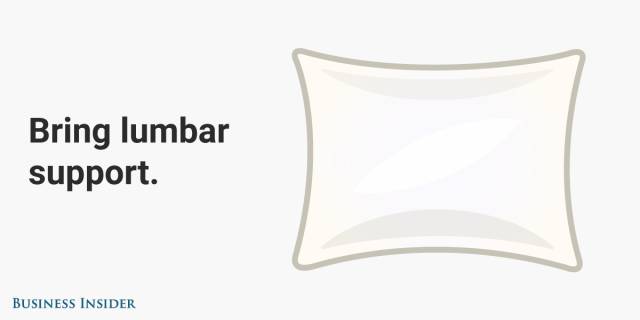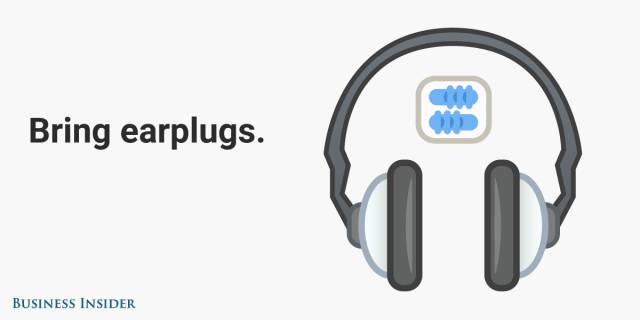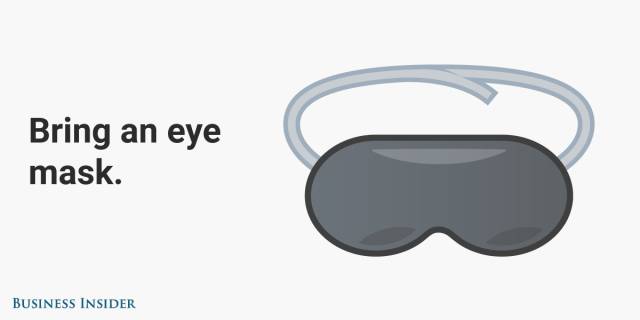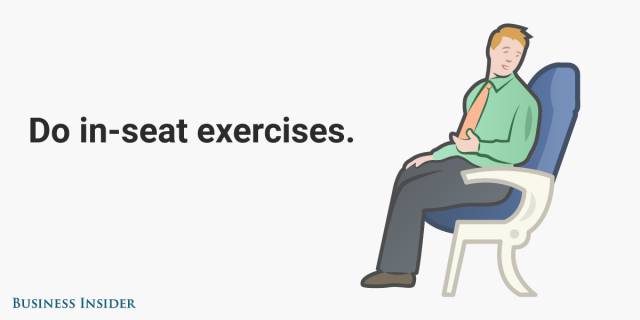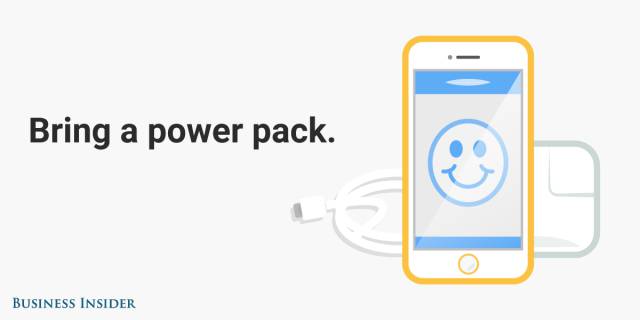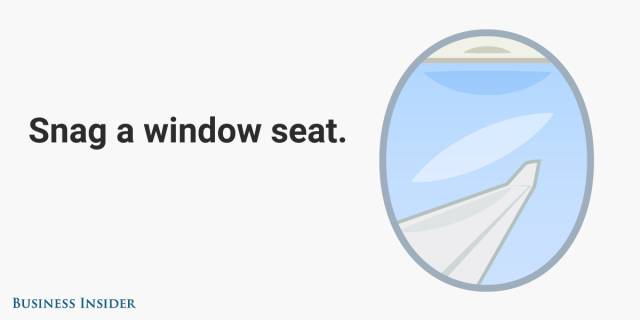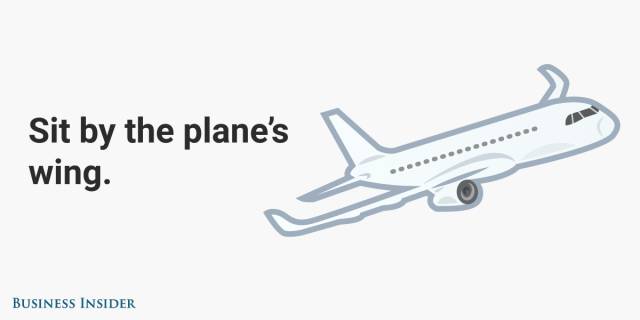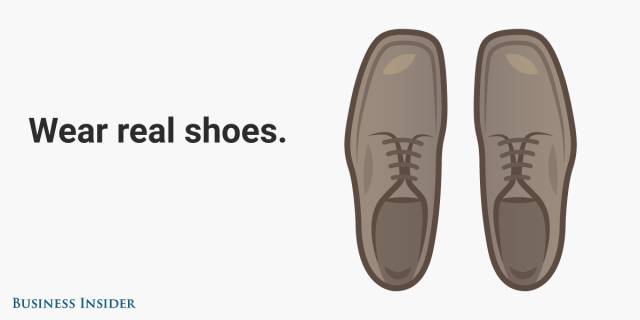One study found that carb-rich foods such as spaghetti, whole grain bread, and oatmeal make it easier to cope with jet lag. According to the study, higher levels of insulin make it easier to transition from one sleep and eating schedule to another. Carb-rich foods help induce insulin secretion, which is why they may be helpful in preventing or minimizing jet lag.
Being hungry when you're on the ground is uncomfortable enough, but at least you can run out and grab a snack. Hunger on a plane means either caving and buying the outrageously expensive snacks on board, or sitting there and waiting until the next meal is served — if meals are being served.
Your best bet is to bring protein-rich snacks that will keep you feeling full longer. Think almonds, peanut butter and crackers, cheese, yogurt, or protein bars.
According to WebMD, it's harder to digest while in the air — so although it's OK to eat, filling up isn't the best idea. In fact, depending on how long your flight is, you might want to eat just before boarding and eat only snacks while on the plane. If you do eat on the plane, keep in mind that warm foods are better than cold foods since they're easier to digest.
If you've ever sat next to someone who has requested a vegetarian meal on a plane, you know that these meals are the first to be served. So if you're hoping to get your food before everyone else — which means not having to wait for the full service and being able to get to sleep sooner — request a special meal. There are multiple kinds of meals you can request depending on the airline you're flying, from gluten-free to kosher, so make sure to check online before your flight.
While there's no magic amount of water you should drink on a flight, health experts usually recommend drinking more than you normally do because air travel is dehydrating. Continue drinking throughout the flight — don't wait until you're thirsty to ask the flight attendant for some water.
Caffeine will keep you up, dehydrate you further, and make you irritable.
If decaffeinated green tea is an option on your flight, you might want to take advantage. The drink has been said to help stave off the onset of jet lag.
If you're the kind of person who falls asleep more easily after a glass of wine, then by all means order a small bottle. But keep in mind that although alcohol is a depressant, it can act as a stimulant for the first few hours after you drink it, which means it might actually keep you up.
Drinking too much can lead to multiple issues such as dehydration and grogginess that will only exacerbate the dehydration you're already experiencing and the jet lag you'll most likely experience once you land. There's also the chance that you'll get sick, and no one wants to spend the better part of a long-distance flight in a cramped — and possibly not-so-clean — bathroom.
While sweatpants shouldn't be your go-to travel attire, it's a good idea to wear more comfortable, loose clothing on a flight — especially a long one. For men, this can mean jeans and a T-shirt; women may try leggings and a sweater.
Long flights can mean going from freezing to overheated and back again. To keep your body at a comfortable temperature, it's best to layer your clothing. Don't just wear a T-shirt and bring a heavy jacket — instead, wear a T-shirt with a sweater or sweatshirt over it, and then consider bringing a jacket as well, just in case. This 15-in-1 jacket would be ideal for hassle-free travel.
A scarf comes in handy on a flight since it can be used as a fashion accessory, a blanket, and even lumbar support (see below). Even expert travelers swear by them.
Sure, they're not the hottest accessory out there, but your neck will thank you. Plus, being physically comfortable will improve your general well-being and will likely help you sleep.
Why airplane seats were designed with a curve is beyond us, but their C-shape does nothing for the human spine, which looks more like an S, thus causing passengers to have achy backs and necks. Wedging a pillow, blanket, scarf, or sweater behind your lower back will counteract the seat's shape and keep your spine in its natural shape.
The ambient roar of a plane's engine — and background noise in general — is said to cause stress. Noise-cancelling headphones or earplugs will not only block out that noise, but also block out other sounds that can keep you awake, like crying babies or flight attendants trying to serve meals.
An eye mask isn't the most flattering look when you're flying, but blocking out light helps with jet lag, as light affects your circadian rhythm. It also mentally prepares you for sleep and blocks out the early breakfast wake-up on long-haul flights.
If compression socks are a little too much for you, you can do some in-seat exercises to get the same effect. Airlines such as Qantas and Virgin even suggest exercises, and Qantas suggests engaging in them for three or four minutes every hour.
Exercises include lifting your feet off the ground by a few inches and rotating them in circles; keeping your heels on the floor and pointing your toes up as far as you can, then pointing your toes down while lifting your heels up; and rolling your shoulders forward and backward.
Traveling drains your phone's battery — while you're waiting, you're probably playing games, texting, or checking weather, traffic, or delays. Make sure your phone and tablet are fully charged before you leave, or bring some extra juice in the form of a power pack.
A window seat not only gives you a nice, solid wall to rest your head on for a more comfortable nap, but it also means you won't be disturbed by passing beverage carts, and that you have to get up only when you need to go to the bathroom.
Many experts claim that the seats by a plane's wing experience less turbulence since they're closer to the plane's center of gravity.
In the case of an emergency, closed-toed shoes are your safest bet. There could be fire, debris, or shards of glass, and closed-toed shoes will also let you move faster if need be.





